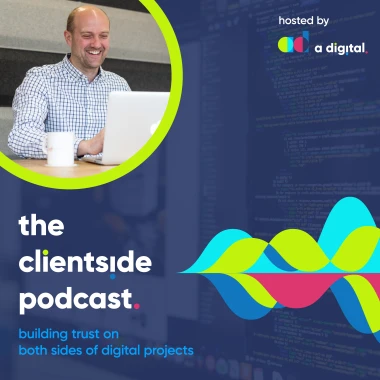
Agency Relationships with Ollie Whitfield
The Clientside Podcast
39 min Ollie Whitfield
Pool player and footballer on the weekends, marketer and content fanatic in the week. Ollie Whitfield is plying his trade as a product marketer for B2B SaaS companies, VanillaSoft & Autoklose, 2 leading Sales Engagement platforms.
In this episode, Andrew Armitage talks about researching and approaching agencies, the pitch process from a client perspective, what you can do to really help build a relationship with an agency.
Listen on your smart device or read the transcript below
It's kinda like moving in with somebody, that new housemate, how do they do things, all of that stuff that you have worked out yet. And you've got to because they might do things a certain way. They might have certain tools and you have different ones. There's all kinds of things like that.
Ollie Whitfield Tweet